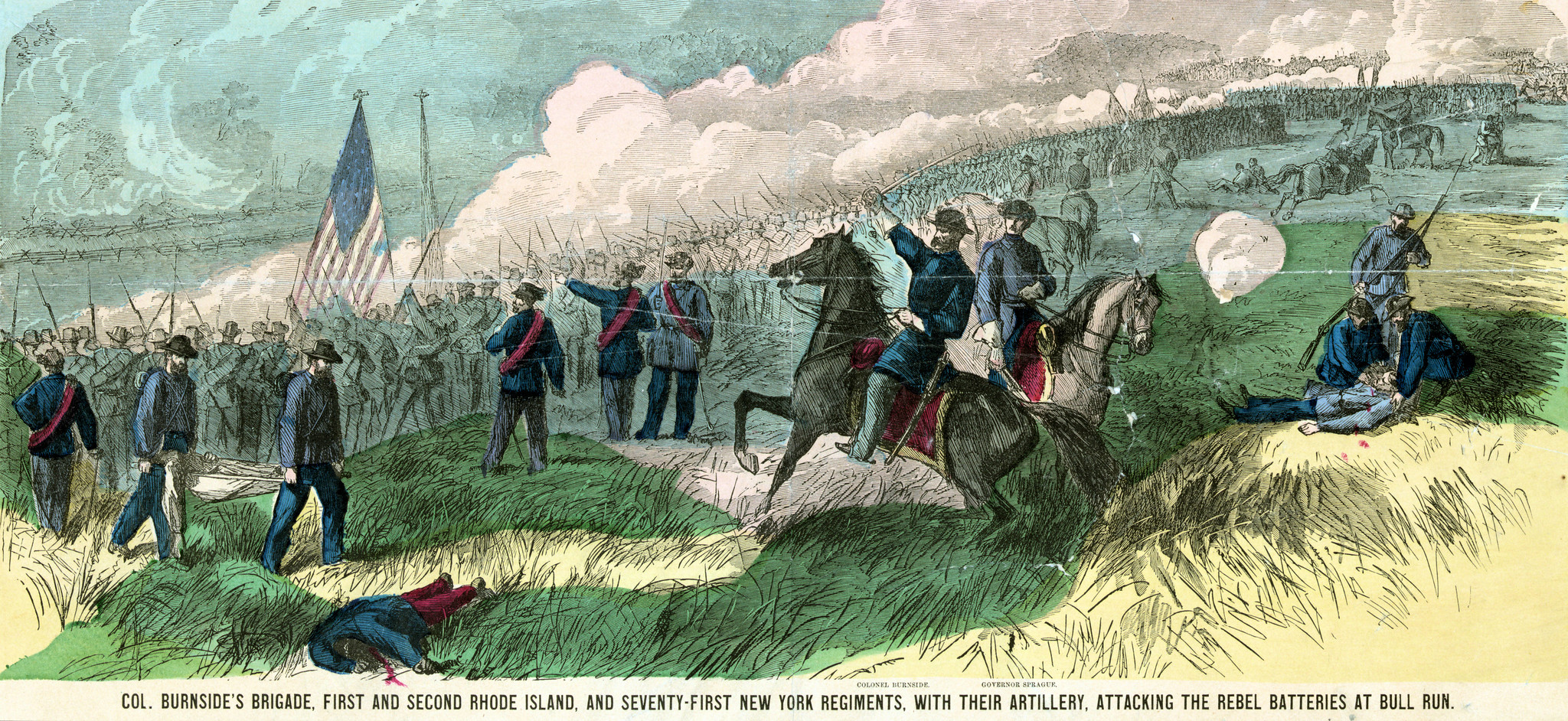 Col Burnside’s Brigade, First and Second Rhode Island, and Seventy-first New York Regiments, with their artillery, attacking the rebel batteries at Bull Run
Col Burnside’s Brigade, First and Second Rhode Island, and Seventy-first New York Regiments, with their artillery, attacking the rebel batteries at Bull Run
Among the brave Regiments of that terrible and unfortunate day at Bull Run, the united testimony of observers, military and civil, awards a very high position for determined bravery and steadiness in action, to the First and Second Rhode Island regiments, and the New York Seventy-first. Other Regiments may hale rushed with more fierceness into the fight, but none stood their ground with more unflinching resolution, or left the field in better order. Burnside’s Brigade and the Rhode Island Regiments and Artillery were attached to Col. Hunter’s Division, and, under his command, made the detour to the north to flank the enemy, and took part in those fierce struggles in which, for hours, our troops drove the enemy, foot by foot, a mile and a half back on his own lines. It was early in this stubborn fight that the brave Col. Slocum, of the Second, fell, and Major Ballou, of the same regiment, soon after; but nothing could daunt the spirit of the Rhode Island men, and Burnside and their fearless young Governor (Sprague) were each in them-selves a host. They cheered on their men, exposing themselves without stint; Gov. Sprague had two horses shot under him, and his clothing perforated with bullets, but escaped without injury, save a slight scratch on the face from a shell. He was at the bead of his column throughout the baffle. The wounded men seem to partake of the enthusiasm of their comrades, and to forget their own injuries in their anxiety for the success of the cause. When Capt. Tower, the commander of one of the Rhode Island companies, was severely wounded, he said, “Turn me over on my back, boys, and go in.” Though constantly reinforced, the Rebel troops could not withstand the steady pressure of the Rhode Island troops and the Connecticut and New York regiments, and retreated, again and again. At length, when the flank movement of Johnson’s fresh troops had rendered the position of the Rhode Islanders no longer tenable, and their splendid battery could not be withdrawn, because the horses were all killed, the gallant Governor, with his own hands, spiked the cannon, and, saddened at the thought of their loss, rode off, the last to retreat, as he had been the foremost in the fight.
Battle Scenes, no. 1
published at H.H. Lloyd & Co., c1861
handcolored lithograph
Library of Congress image .